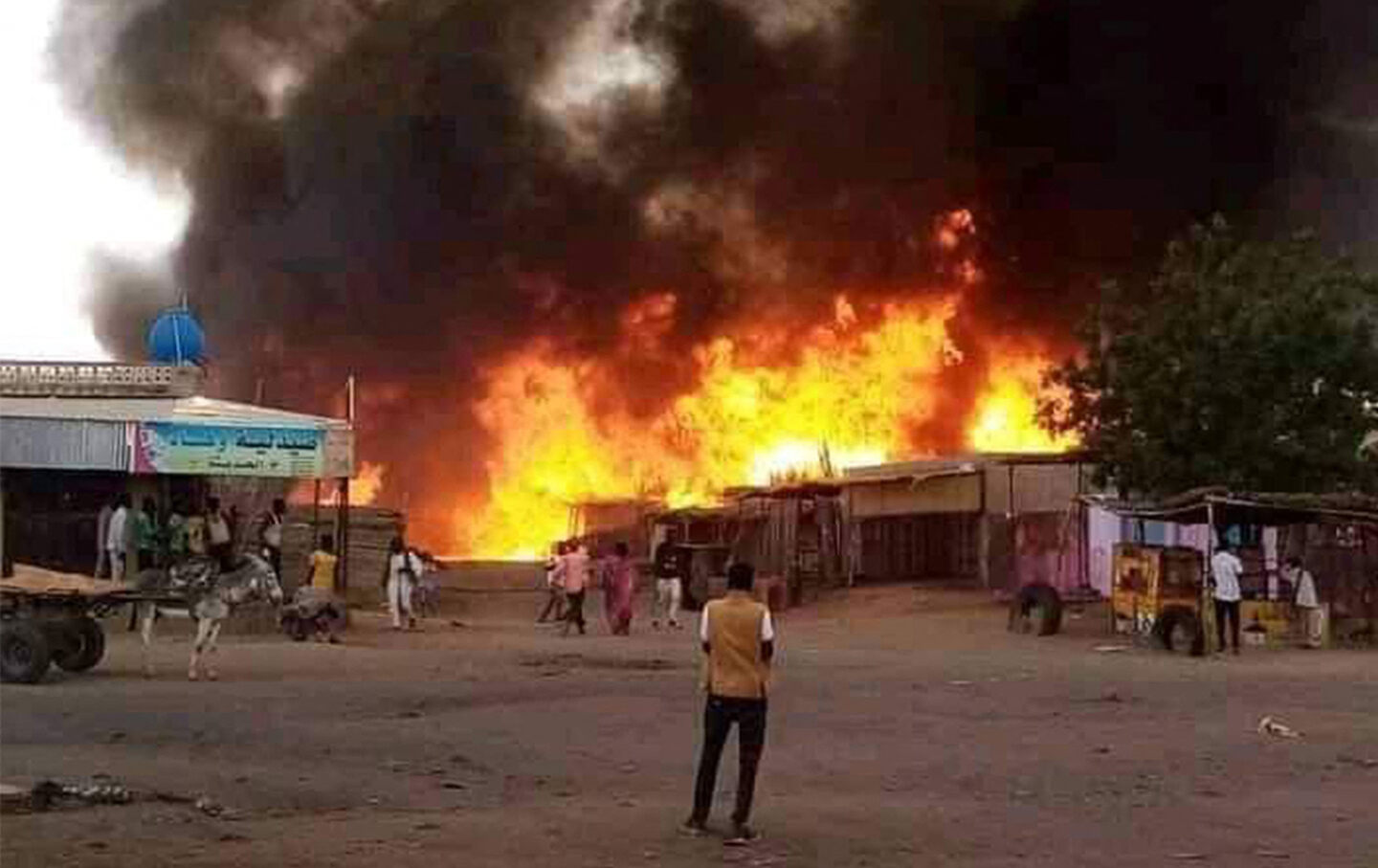The Past, Present, and Future of the War In Sudan
On this episode of American Prestige, Khalid Medani on the conflict in Sudan.

Here's where to find podcasts from The Nation. Political talk without the boring parts, featuring the writers, activists and artists who shape the news, from a progressive perspective.
On this episode of American Prestige, Danny and Derek welcome to the podcast Khalid Medani—associate professor of political science, director of the Institute of Islamic Studies, and chair of the African Studies Program at McGill University—for a deep dive into the conflict that has engulfed Sudan since last Spring. They delve into its roots going back to the 1989 coup, break down the makeup of the primary combatants (the Sudanese Armed Forces and the paramilitary Rapid Support Forces), how these groups are able to continue recruiting and maintain support networks, the conflict’s catastrophic humanitarian crisis and regional effects, foreign mercenaries and whether it has become a proxy war, efforts of local civil leaders to quell the fighting, and what things might look like moving forward.
As Khalid noted, two places to which he recommends you donate are the Sudanese Doctors Union or the Sudan Solidarity Collective.
Some of Khalid’s recent work:
- “The Struggle for Sudan” from Middle East Report’s Spring 2024 issue is a primer on Sudan.
- Middle East Research and Information Project’s Spring 2024 issue has multiple contributors, including Khalid, writing about the conflict.
- His book Black Markets and Militants: Informal Networks in the Middle East and Africa, which is free via Open Access.
- “Opinion: The brutal conflict in Sudan is not a civil war. It’s a war on civilians” from The Globe and Mail.
Advertising Inquiries: https://redcircle.com/brands
Privacy & Opt-Out: https://redcircle.com/privacy

A man stands by as a fire rages in a livestock market area in al-Fasher, the capital of Sudan’s North Darfur state, on September 1, 2023, in the aftermath of bombardment by the paramilitary Rapid Support Forces (RSF).
(AFP via Getty Images)On this episode of American Prestige, we welcome Khalid Medani—associate professor of political science, director of the Institute of Islamic Studies, and chair of the African Studies Program at McGill University—for a deep dive into the conflict that has engulfed Sudan since last Spring. They delve into its roots going back to the 1989 coup, break down the makeup of the primary combatants (the Sudanese Armed Forces and the paramilitary Rapid Support Forces), how these groups are able to continue recruiting and maintain support networks, the conflict’s catastrophic humanitarian crisis and regional effects, foreign mercenaries and whether it has become a proxy war, efforts of local civil leaders to quell the fighting, and what things might look like moving forward.
As Khalid noted, two places to which he recommends you donate are the Sudanese Doctors Union or the Sudan Solidarity Collective.

Here's where to find podcasts from The Nation. Political talk without the boring parts, featuring the writers, activists and artists who shape the news, from a progressive perspective.
Yoni Appelbaum, a deputy executive editor at The Atlantic, joins the program to talk about his book Stuck: How the Privileged and the Propertied Broke the Engine of American Opportunity. We discuss mobility in the US and how that might sacrifice community for opportunity, the “frontier” as a way of taking land and easing class antagonism, the birth of American zoning from anti-Chinese practices in 19th century California, the move toward the single-family home and it being a symbol of the American identity, how we can make homes accessible once more for working Americans, and more.
Advertising Inquiries: https://redcircle.com/brands
Privacy & Opt-Out: https://redcircle.com/privacy
